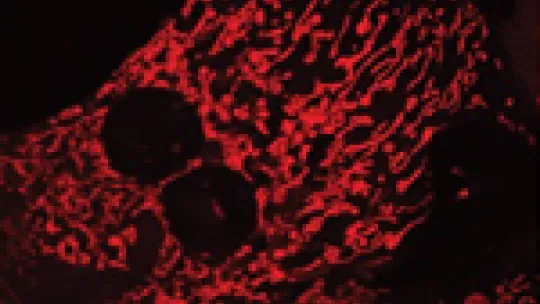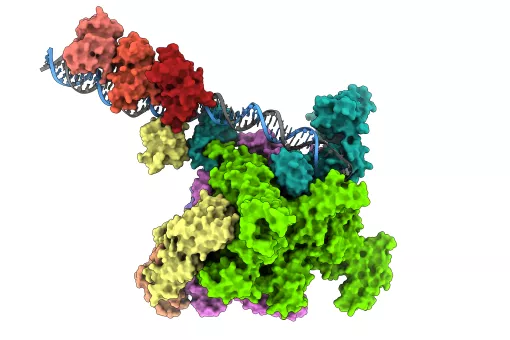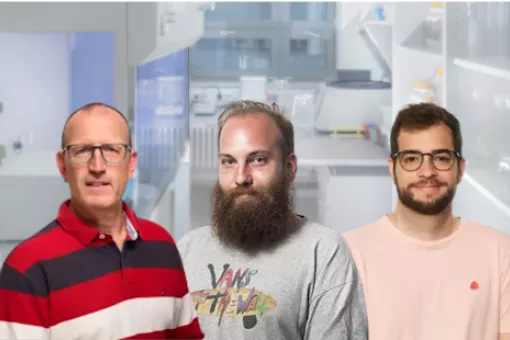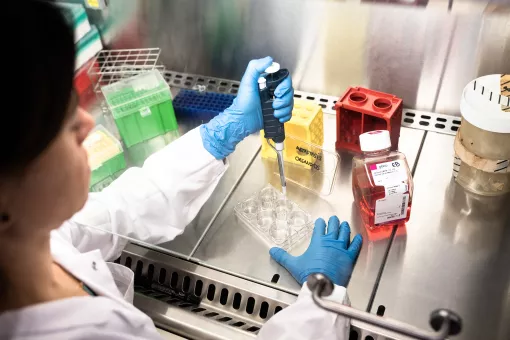Images
Researchers at the Institute for Research in Biomedicine (IRB Barcelona) have discovered that deficiency of a single protein, Mitofusin 2, in muscle and hepatic cells of mice is sufficient to cause tissues to become insensitive to insulin, thus producing an increase in blood glucose concentrations. These are the two most common conditions prior to development of diabetes type 2. Published in this week’s issue of Proceedings of the National Academy of Sciences (PNAS), the study validates Mitofusin 2 as a possible target for the treatment of diabetes type 2.
“Resistance to insulin plays a key role in the development of diabetes mellitus, dyslipidemia (alteration of lipid concentrations) and obesity. Mitofusin 2 may provide a specific target for the development of drugs that could hold back a disease that affects millions of people worldwide”, explains the head of the study, Antonio Zorzano, full professor of the University of Barcelona, coordinator of the Molecular Medicine Programme at IRB Barcelona, and head of the Heterogenic and Polygenic Diseases lab at the same centre.
The World Health Organization estimates that there will be 350 million people suffering from diabetes in 2020. Diabetes type 2 accounts for 90% of diabetes cases and is due to a great extent to excess body weight, poor nutrition and sedentary lifestyle. According to the Spanish Society of Diabetes, in Spain 6.5% of the current population between 30 and 65 years has this disease and about 11.6 % of Spaniards are at risk of developing it.
Target: Mitofusin 2
Previous studies performed at IRB Barcelona demonstrate that both obese and diabetes type 2 subjects have low levels of muscle Mitofusin 2. This protein controls the insulin signaling pathway in the liver and muscles. The scientists have observed that deficiency of this protein causes alterations in mitochondria and the endoplasmic reticulum, two crucial organelles for correct cell functioning. “We have shown that the accumulation of dysfunctions in these two structures alters cell behavior and favors the appearance of pre-diabetes symptoms”, say the main authors of the article, David Sebastián and María Isabel Hernández-Álvarez, post-doctoral fellows in Zorzano’s team.
The study has been partially funded by the European projects MITIN, part of the Seventh Framework Programme (FP7), and DIOMED, belonging to INTERREG/SUDOE/FEDER, both coordinated by Antonio Zorzano at IRB Barcelona, with the support of the “CIBER de Diabetes y Enfermedades Metabólicas Asociadas” (CIBERDEM), of the “Instituto de Salud Carlos III”.
Reference article:
Mfn2 links mitochondrial and ER function with insulin signaling and is essential for normal glucose homeostasis. David Sebastián, María Isabel Hernández-Alvarez, Jessica Segalés, Eleonora Sorianello, Juan Pablo Muñoz, David Sala, Aurélie Waget, Marc Liesa, José C. Paz, Gopal Peddinti, Matej Orešič, Sara Pich, Remy Burcelin, Manuel Palacín, Antonio Zorzano.
PNAS (2012): Doi 10.1073/pnas.1108220109
About IRB Barcelona
The Institute for Research in Biomedicine (IRB Barcelona) pursues a society free of disease. To this end, it conducts multidisciplinary research of excellence to cure cancer and other diseases linked to ageing. It establishes technology transfer agreements with the pharmaceutical industry and major hospitals to bring research results closer to society, and organises a range of science outreach activities to engage the public in an open dialogue. IRB Barcelona is an international centre that hosts 400 researchers and more than 30 nationalities. Recognised as a Severo Ochoa Centre of Excellence since 2011, IRB Barcelona is a CERCA centre and member of the Barcelona Institute of Science and Technology (BIST).







